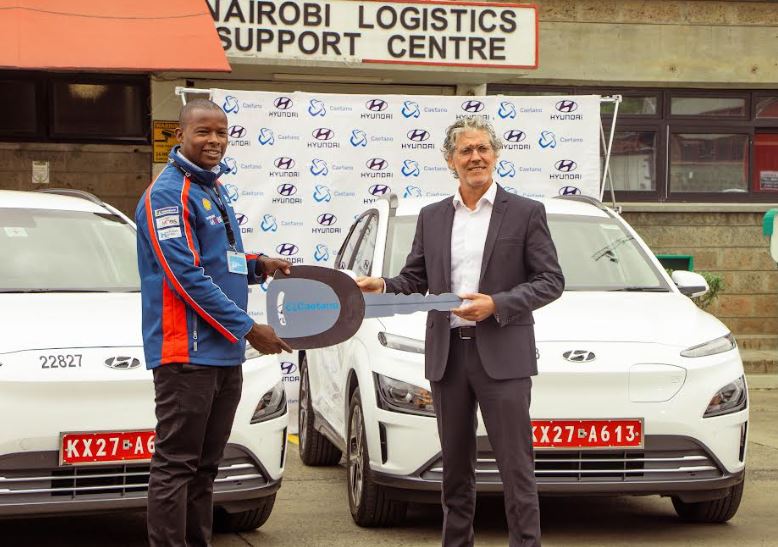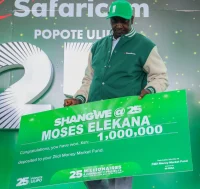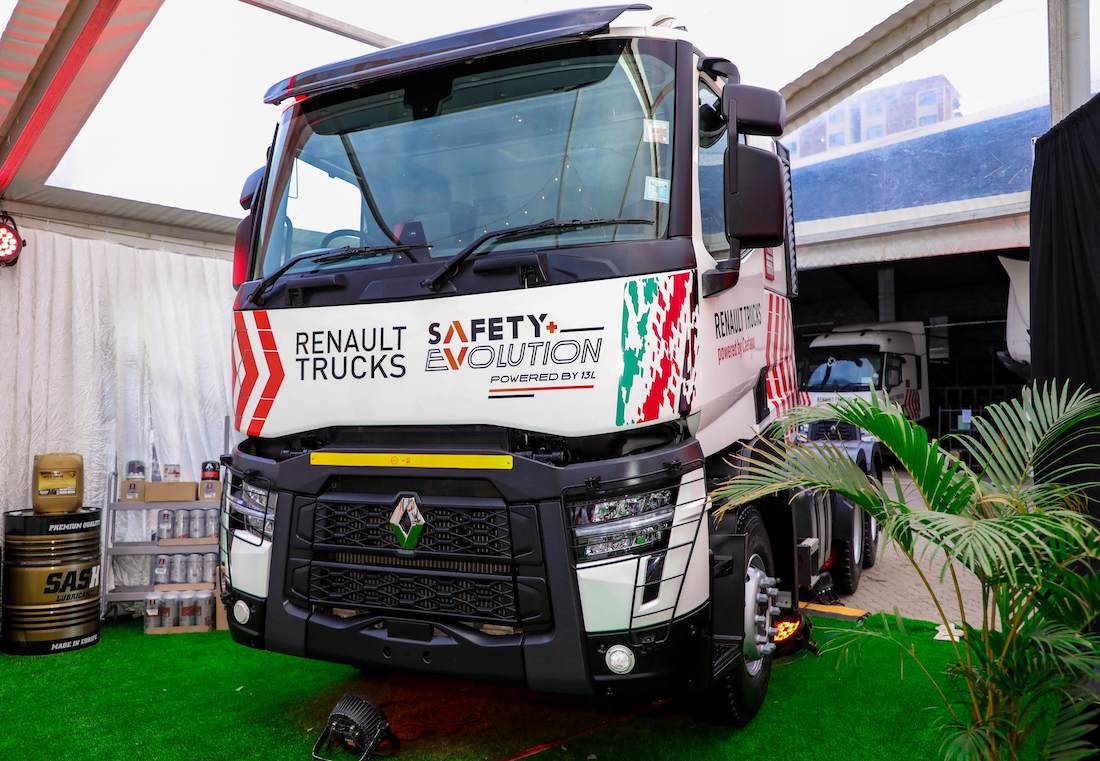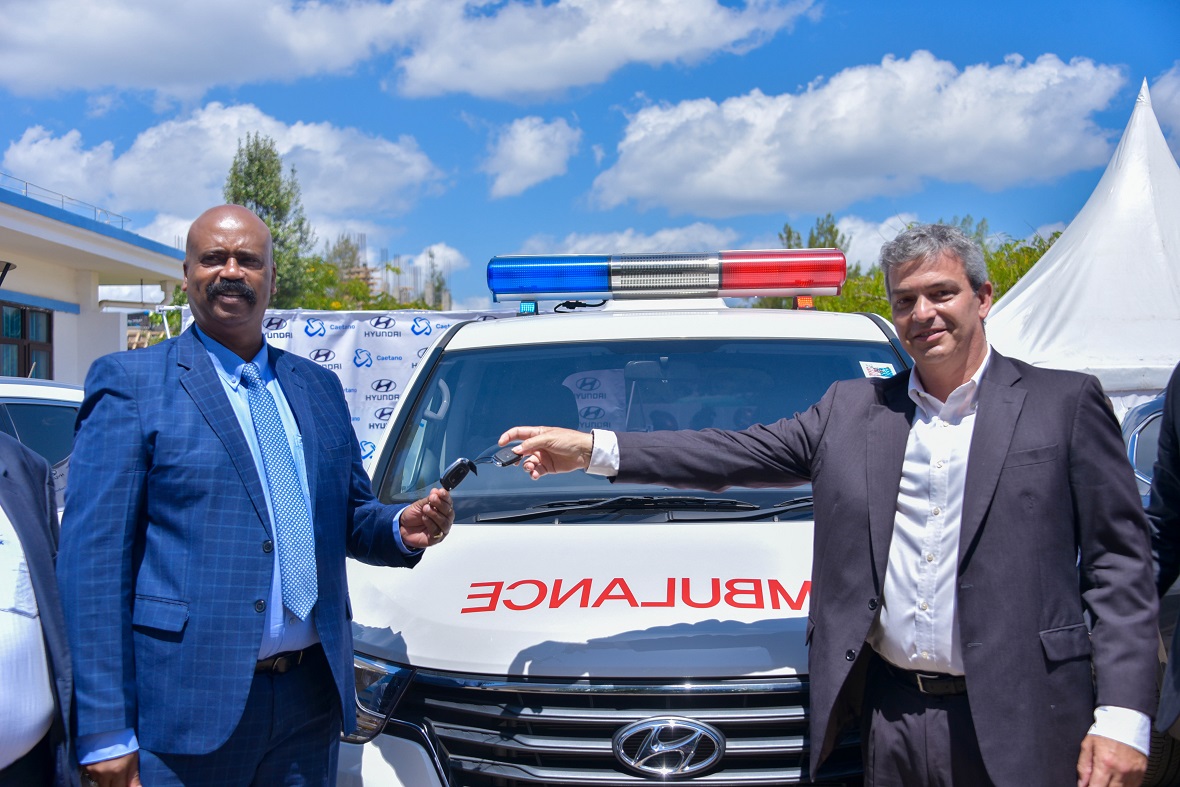Caetano Kenya, the official dealer of Hyundai in Kenya, delivered five Hyundai KONA Electric Vehicles to ICRC Regional Delegation, Kenya.
ICRC purchased the cars to reinforce their existing fleet of electric vehicles. Hyundai has been at the forefront of driving green mobility globally and in Kenya they launched the first electric vehicle to be commercialized – Hyundai KONA Electric Vehicle.
“We are privileged to hand over these five KONA EV to ICRC. This is a testament of their commitment to sustainability. As a company, we pride ourselves in being at the forefront of driving green mobility and supporting to the Kenyan Government’s plan to have at least 5% of all registered vehicles being electric by 2025 in a bid to curb environmental pollution from petroleum fuels,” Silvanus Wambua, Caetano Kenya Retail and Fleet Sales Manager said.
“Currently the fuel prices in Kenya are at an all-time high, with petrol retailing at Ksh.179 per litre and diesel at Ksh.165 per litre, with the possibility of rising further. The Hyundai KONA EV runs over 400KM on a single charge and is a great alternative to petrol and diesel cars. The Kenyan market is primed to shift to electric vehicles.”
ICRC’s Head of Logistics Support Centre Mauro Iacona noted that with global warming and increasing carbon-dioxide emissions each year, sustainability has become imperative.
“Our decision to reinforce our vehicles with this purchase of electric cars from Hyundai will help us to optimize our fleet and manage fleet waste in a sustainable manner. The 5 electric cars will add to our existing 3 as we seek to rightsize the fleet with the ‘right car doing the right job’. This is also in line with our principle of ‘do no harm’ to minimize the damage we cause to the environment while providing timely and principled humanitarian service,” Mauro said.
Electric Vehicles have an extremely developed technology; its electric motor is progressive, so it doesn’t need a gearbox or a clutch, the batteries determine the power that the engine can use. The car exclusively uses electricity and is charged by plugging into a charging station. The demand for electric cars is projected to grow in Kenya as vehicles become more affordable and charging stations become widely available.
Read: Meet the Man Behind the African Electric Guitar
>>> Electric Motorbikes Set To Turn Around Boda Boda Business













Leave a comment